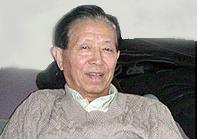The retired Chinese surgeon who risked his life to expose China’s SARS coverup 16 years ago is under house arrest again, after he wrote a letter to Chinese leader Xi Jinping in early March to demand redress for the Chinese regime’s crackdown on the Tiananmen Square student democracy movement in 1989.
This year marks the 30th anniversary of the Tiananmen Square massacre, when Chinese troops opened fire on student protesters who gathered in Beijing to call for government reforms. The sensitive timing has led authorities to amp up its suppression of dissidents.
According to Gao, both phone lines of the Jiang family were cut off by Chinese authorities.
Apple Daily learned that Jiang was furious about what had happened, telling a friend that, “I am no longer a member of this rotten army which knowingly violates the constitution. Why is that I cannot even go to my own hospital to see the doctors?”
Jiang is a former president of the 301 General Hospital. He was forced to retire in 1993, after voicing his disapproval of the Chinese regime’s suppression of the Tiananmen democracy protests in 1989.
When the SARS illness began spreading in China in late 2002 and early 2003, Chinese media were ordered by authorities to stop reporting on the epidemic. On April 3, 2003, China’s Minister of Health Zhang Wenkang held a special press conference to announce that Beijing only had 12 cases of SARS, and that the disease “has been brought under effective control.” He encouraged foreigners to attend business meetings and expos in Beijing and the southern province of Guangdong, saying that “Beijing is a safe place to live and visit” and that “daily life in Guangdong is normal.”
The following day, Jiang emailed an 800-word letter to state broadcaster Chinese Central Television and the Hong Kong-based Phoenix TV to report information that he collected from hospitals in Beijing. Although neither replied or published his letter, the information was leaked to Western media outlets. A journalist from Time magazine contacted Jiang on April 8 and published his letter that day.
“I simply couldn’t believe what I was seeing,” Jiang wrote in his e-mail to Chinese media. “All the doctors and nurses who saw yesterday’s news were furious.” Jiang said he learned from medical staff in two of Beijing’s hospitals that there were at least seven deaths and 106 cases of the disease.
After the letter was made known around the world, Beijing’s mayor and the Minister of Health were sacked on April 21. Chinese authorities quickly played the role of “SARS hero,” actively identifying and quarantining SARS patients, while keeping Jiang out of the spotlight.
In February 2004, Jiang decided to take advantage of his position to call attention to the Chinese regime’s abuses. He wrote an open letter to the Chinese Communist Party’s top leadership, pressing them to admit that the Party leadership had made a mistake in its 1989 crackdown of Tiananmen protesters. As then-head of the general surgery department at the 301 Hospital, he personally treated students who were shot by Chinese soldiers on the evening of June 3.
Jiang once said in a Chinese media interview: “After having experienced various political movements in the past 50 years, I deeply feel that we must speak the truth and speak our true mind. Although it is very, very difficult, I must persist in telling the truth.”





